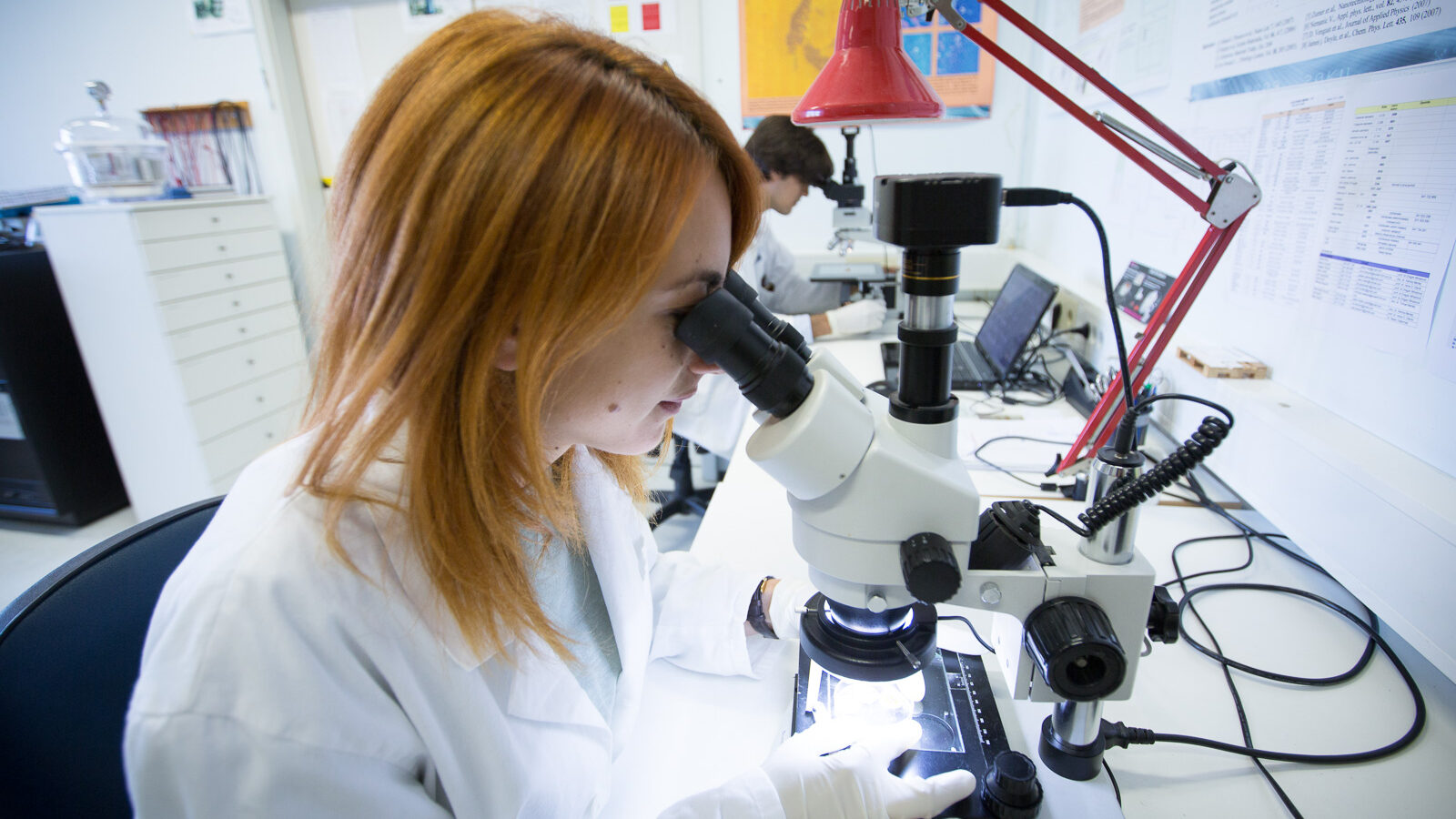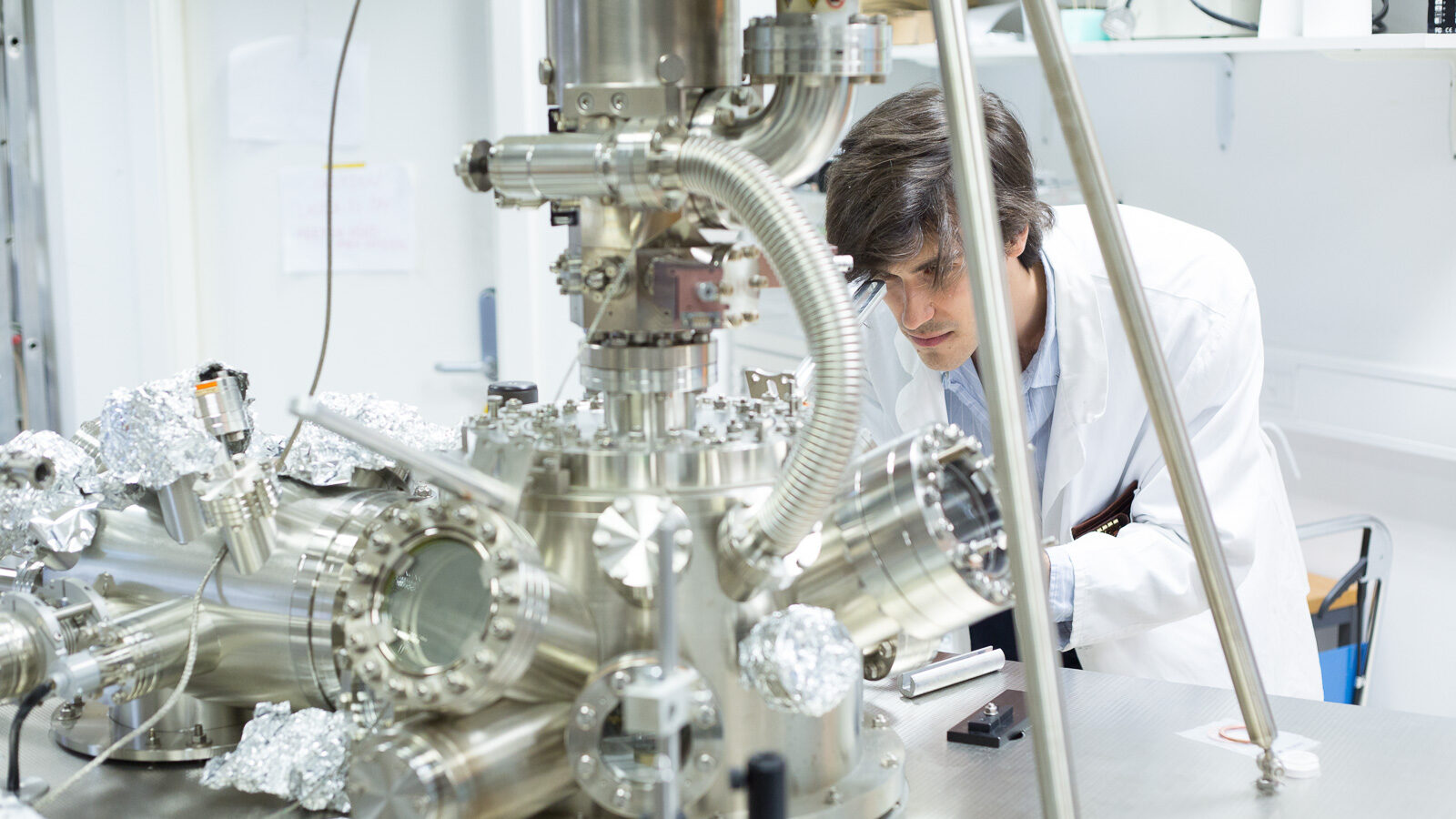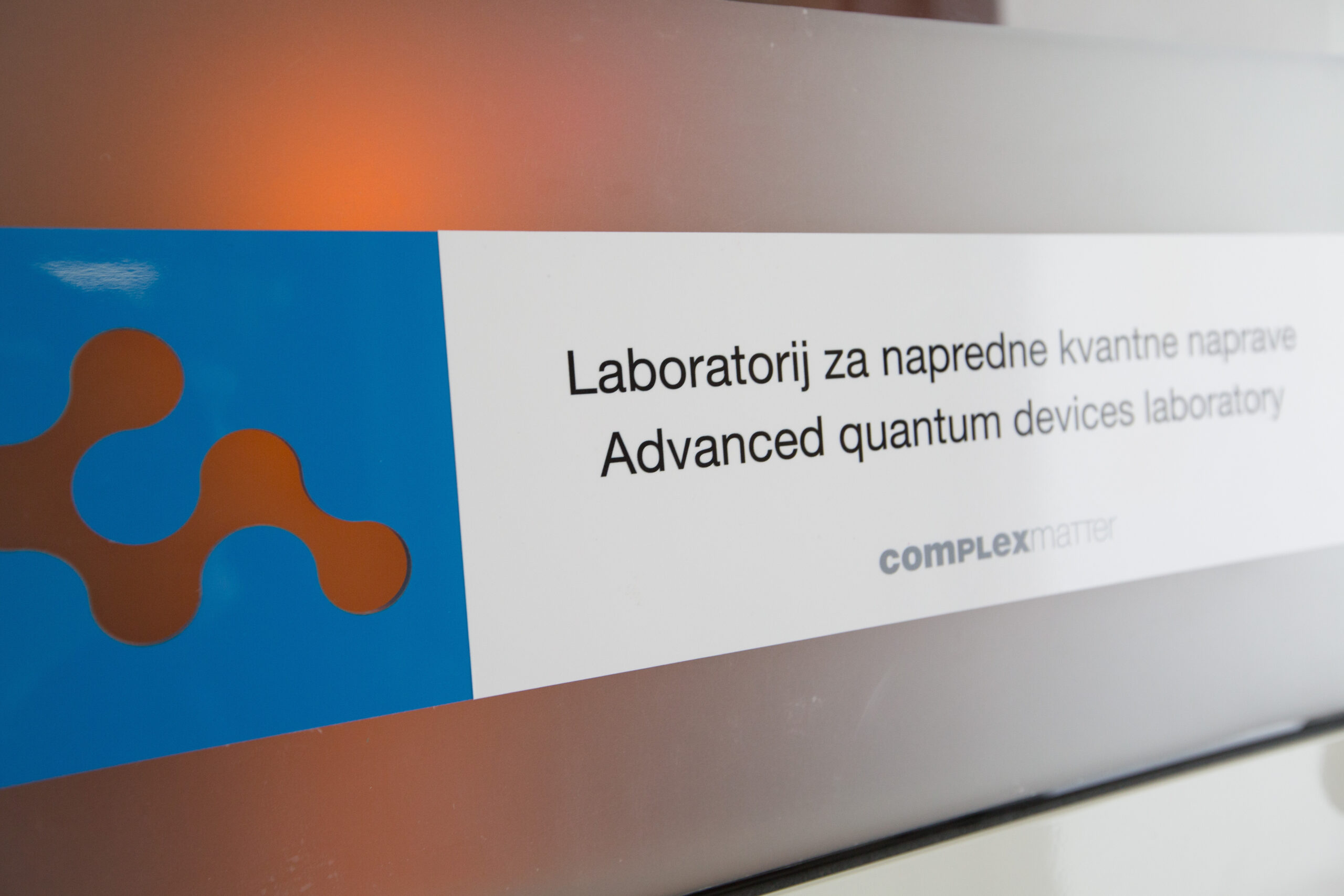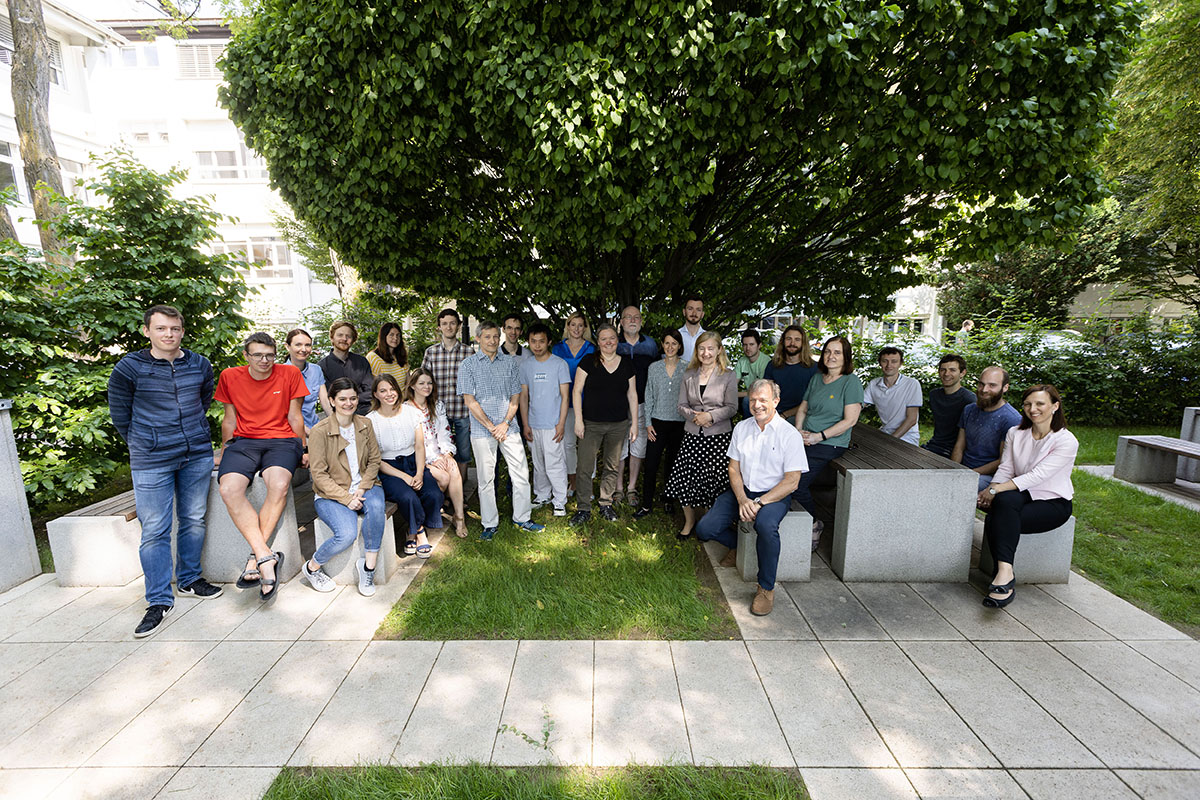The research within the department of Complex Matter encompasses a variety of research fields, ranging from the synthesis of new materials to fundamental investigations of elementary excitations, self-organising behaviour and adaptive functionality in complex systems. These include anything from nano-biosystems and biomolecules to superconductors, topological materials,.
The experimental methods used are suitably diverse, from synthetic chemistry to biomedicine, femtosecond laser spectroscopy, magnetometry. We are also actively developing new experimental tools, such as ultrafast scanning tunnelling microscopy, transient resonant extreme UV polarimetry, etc. The experimental research within the department is strongly supported by theory.
Recently, the research activities on new nanomaterials and nanotechnology, such as nanolithography were greatly expanded. Apart from fundamental research, some applications have also emerged, such as charge-configurational memory and new nanomaterials such as MoSIx nanowires.
If you wish to contribute to scientific and technological progress, and you are a motivated, innovative and creative person feel free to contact us.
Education and training

Undergraduate education
We offer undergraduate students the possibility:
- for practical training,
- to perform the compulsory study practice and
- to perform a diploma work in collaboration with Universities and Industry

Postgraduate education
Qualified graduates are offered the incorporation into the Departments relevant international research work and the acquirement of award a master degree or a PhD degree. We offer the opportunity:
- to work in international environment,
- to work with highly sophisticated equipment,
- to work in a stimulating research environment,
- to be involved in the research program and the international research projects,
- to enroll in postgraduate study programs at different higher education institutions

